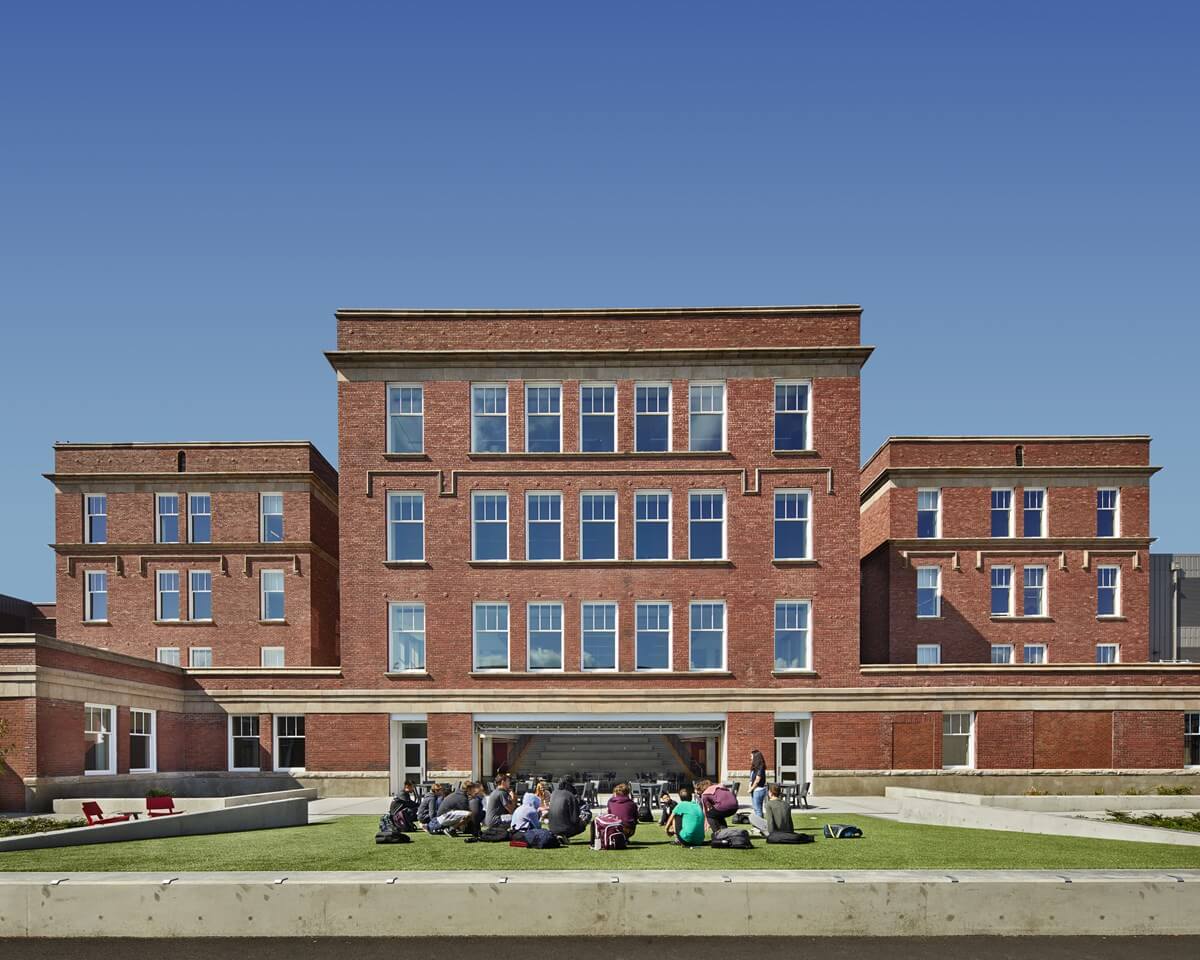The Significance of Regional Support to Save Temecula Schools Today
The Significance of Regional Support to Save Temecula Schools Today
Blog Article
Just How Schools Play a Critical Role in Shaping Future Leaders and Pioneers
By integrating project-based understanding and interdisciplinary studies, instructional organizations challenge trainees to analyze and manufacture complex information. Teachers offer as mentors, assisting trainees and supporting their capacity, while extracurricular activities even more create leadership abilities and durability.
Fostering Vital Thinking
In today's quickly advancing globe, promoting critical thinking within academic establishments has come to be vital. As society faces significantly intricate worldwide obstacles, the ability to analyze, examine, and manufacture info is important. Schools play a critical duty in establishing these skills, preparing pupils to navigate and resolve diverse problems with notified, reasoned choices.
To cultivate crucial thinking, educators employ numerous pedagogical approaches that encourage energetic understanding and intellectual engagement. Classroom conversations, problem-based knowing, and Socratic questioning are important in promoting logical and reflective mind. By testing pupils to question assumptions and think about several viewpoints, these techniques make sure a deeper understanding of topic past rote memorization.
In addition, integrating crucial assuming across the educational program enhances its significance and applicability in diverse contexts. Subjects such as mathematics, science, background, and literature each deal special chances to establish trainees' crucial professors. Analyzing historic occasions needs assessing sources and comprehending context, while scientific inquiry demands rigorous theory screening and evidence-based reasoning.
Ultimately, instilling essential thinking abilities in trainees equips them with the cognitive tools needed for long-lasting knowing and versatility. It is with this foundational capability that future leaders will certainly be able to innovate, resolve troubles, and contribute meaningfully to culture.
Urging Creative Thinking
Welcoming imagination within instructional frameworks galvanizes trainees to assume past conventional limits and discover innovative solutions. By incorporating imaginative endeavors and imaginative thinking exercises into the curriculum, institutions grow an environment where creativity and imaginative thought are valued. This method not only enhances the academic experience but likewise gears up students with the capability to tackle real-world obstacles in unique ways.
Educational institutions can promote imagination through diverse methods such as project-based learning, interdisciplinary researches, and the incorporation of arts and innovation. Project-based learning, as an example, encourages trainees to use their expertise in sensible, commonly collective, tasks that demand creative analytic abilities. Interdisciplinary studies allow trainees to attract links in between different subjects, therefore expanding their point of views and improving their innovative capacities.
Moreover, giving students with chances to engage with emerging technologies, such as coding and digital layout, better supports their imaginative potential. These tasks motivate trainees to experiment, fail, and repeat, which are essential elements of the imaginative process (Save Temecula Schools). By preserving a helpful atmosphere where testing is motivated, schools can make certain that pupils create the confidence to pursue cutting-edge ideas
Essentially, nurturing creativity in academic settings is essential for shaping future leaders and innovators with the ability of dealing with complicated worldwide problems with resourcefulness.
Encouraging Collaboration

Executing group-based understanding modules and participating jobs allows pupils to experience the dynamics of synergy firsthand. This not only prepares them for the collaborative nature of modern-day work environments however additionally supports management high qualities as they usually have to handle roles such as task managers or group planners. Furthermore, cooperation in the class can damage down social obstacles and advertise inclusivity, guaranteeing that each trainee really feels valued and listened to.
Furthermore, incorporating modern technology can better support collective efforts. Tools like shared electronic workspaces and interactive platforms allow trainees to collaborate efficiently, even outside the classroom. As pupils develop these joint skills, they are better outfitted to tackle complex challenges and innovate, preparing for resource their future functions as innovators and leaders.
Role of Educators as Coaches

Mentorship entails individualized attention, where educators recognize and nurture specific strengths and address weak points. Save Temecula Schools. Through one-on-one communications, instructors can customize their advice and support to satisfy each pupil's distinct needs, cultivating a sense of self-confidence and durability. This customized method cultivates a development mindset, encouraging trainees to check out failures as opportunities for learning and development
Moreover, instructors act as good example, showing the values of empathy, honesty, and determination. Their mindsets and activities supply a plan for students to mimic, instilling a sense of moral obligation and social awareness. By producing a inclusive and encouraging classroom environment, teachers allow students to develop social abilities that are crucial for reliable management.
In significance, the mentorship supplied by instructors lays a fundamental structure for the advancement of future leaders, equipping them with the knowledge, skills, and values needed to master an ever-evolving globe.
Effect of Extracurricular Activities
When integrated effectively into the educational framework, extracurricular tasks significantly boost trainee advancement and leadership possibility. These tasks offer students with possibilities to discover rate of interests beyond the conventional educational program, promoting a well-rounded capability. Clubs, sports teams, and arts programs grow essential qualities such as synergy, time monitoring, and durability. Involvement in these tasks frequently calls for trainees to take on duties, thereby supporting their management abilities.
Moreover, extracurricular participation encourages creative thinking and technology. Students participated in debate, dramatization, or songs clubs learn to believe seriously and method issues from diverse perspectives. These experiences impart self-confidence, enabling students to articulate their ideas and take initiative in numerous settings. By collaborating with peers from different histories, pupils also create compassion and interaction abilities, crucial attributes for future leaders.
Research suggests that students involved in such programs have a tendency to have higher qualities and better attendance documents. Therefore, institutions that focus on a balanced strategy to education and learning, incorporating durable extracurricular programs, are a lot more likely to create trendsetters and leaders equipped to fulfill the difficulties of the future.

Final Thought
In conclusion, institutions substantially form future leaders and pioneers by supporting important thinking, creative thinking, and partnership among pupils. By fostering a helpful setting that values individual strengths and teamwork, institutions read the article equip students with the essential skills to navigate future obstacles and drive development.
As pupils establish these collective skills, they are much better outfitted to deal with complicated challenges and introduce, laying the groundwork for their future functions as leaders and innovators.
By promoting essential reasoning and analytical abilities, teachers aid trainees navigate complicated obstacles, preparing them for leadership functions in various areas.
By collaborating with peers from various backgrounds, students additionally create empathy and interaction skills, crucial traits for future leaders.
In final thought, colleges dramatically form future leaders and innovators by nurturing crucial reasoning, creativity, and cooperation among pupils. By promoting a supportive environment that values private toughness and teamwork, institutions furnish trainees with the essential abilities to browse future difficulties and drive technology.
Report this page